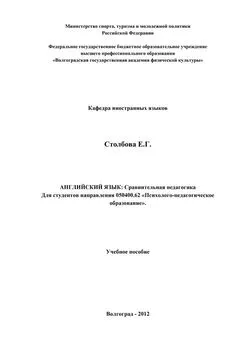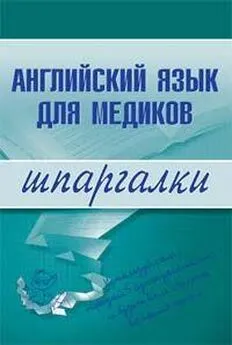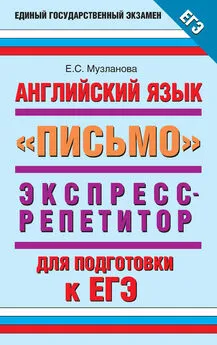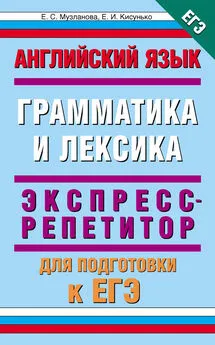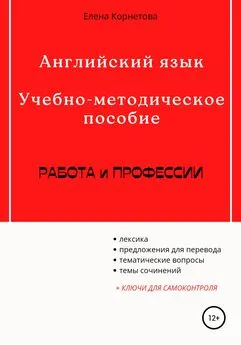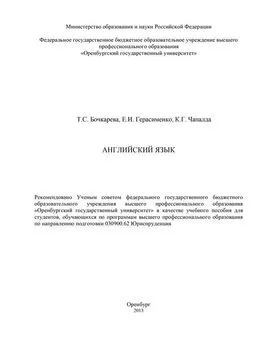Елена Столбова - Английский язык. Сравнительная педагогика
- Название:Английский язык. Сравнительная педагогика
- Автор:
- Жанр:
- Издательство:Литагент БИБКОМ
- Год:2012
- Город:Волгоград
- ISBN:5767
- Рейтинг:
- Избранное:Добавить в избранное
-
Отзывы:
-
Ваша оценка:
Елена Столбова - Английский язык. Сравнительная педагогика краткое содержание
Английский язык. Сравнительная педагогика - читать онлайн бесплатно ознакомительный отрывок
Интервал:
Закладка:
Aristotle was an academic throughout his career. At the age of 18 he entered one of the most renowned centres of learning of his day, Plato’s Academy, where he became noted for the passion with which he devoted himself to his studies, particularly to reading, a trait which won him the nickname of ‘reader’. Then he built up the first great library which served as a model for the libraries of Alexandria and Pergamon. In 334 Aristotle returned to Athens and established his own school, the Lyceum. It was a type of university where research was pursued as an extension of higher education.
For Aristotle the goal of education is identical with the goal of man. Obviously all forms of education are explicitly or implicitly directed towards a human ideal. But Aristotle considers that education is essential for the complete self-realization of man. The supreme good to which all aspire is happiness. But for Aristotle the happy man is neither a noble savage, nor man in his natural state, but the educated man.
1. Who was Aristotle?
2. What was his goal of education?
3. Who was the happy man, according to Aristotle?
4. What was Lyceum like?
5. How did his ideas influence on Western philosophy?
LESSON 2
THE PROCESS OF TEACHING
1 . Read and translate the text.
A teacher's main responsibility is to teach. The teacher's job involves many roles besides that of instructing students. At times, a teacher serves as a parent surrogate, entertainer, psychotherapist, and record keeper, among other things. All of these are necessary aspects of the teacher's role. However, they are subordinate to and in support of, the major role of teaching.
Some teachers become more concerned with mothering or entertaining students than with teaching them. In these classes, much of the day is spent in reading stories, playing games, singing and listening to records. Such teachers do not like to spend much time teaching the curriculum and feel they must apologize to children or bribe them when lessons are conducted. These teachers are meeting their own needs, not those of the students. By the end of the year, the pupils will have acquired negative attitude toward the school curriculum, and they will have failed to achieve near their potential.
The teacher is in the classroom to instruct. This involves move than just giving demonstrations or presenting learning experiences. Instruction also means giving additional help to those who are having difficulty, diagnosing the sources of their problems, and providing remedial assistance. For the teacher we see that it means finding satisfaction in the progress of slower students as well as brighter ones. If a teacher's method of handling students who finish quickly is to assign them more of the same kind of exercises, students will learn to work more slowly or hid the fact that they have finished. Teachers would do much better to assign alternate activities of the students' choice or to allow them to move on to more challenging problems of a similar type.
Another important indicator is the way teachers respond to right and wrong answers. When teachers have the appropriate attitude, they accept either type of response for the information it gives about the student. They become neither overly elated about correct answers nor overly disappointed about incorrect answers. They use questions as a way to stimulate thought and to acquire information about a student's progress.
Although praise and encouragement are important, they should not interfere with basic teaching goals. If a teacher responds with overly dramatic praise every time a student answers a simple question, the class will likely be distracted from the content of the lesson. A better strategy is to follow a simple correct answer with simple feedback to acknowledge that it is correct. Criticism, of course, should be omitted. In general, the teacher’s behavior during question-and-answer sessions should say, "We're going to discuss and deepen our understanding of the material," and not, "We’re going to find out who knows the material and who doesn't."
Although all students cannot be expected to do equally well, each teacher can establish reasonable minimal objectives for a class. Naturally, most students will be capable of going considerably beyond minimal objectives, and the teacher should encourage students' cognitive development as far as their interests and abilities allow. However, in doing so, teachers must not loose sight of basic priorities. Teachers with appropriate attitudes will spend extra time working with students who are having difficulty.
When teachers do have the appropriate attitude toward school-work, they present it in ways that make their students see it as enjoyable and interesting. Teachers should not expect students to enjoy learning in the same way they enjoy a ride on a roller coaster. Instead, there should be the quieter but consistent satisfaction and feelings of mastery that come with the accumulation of knowledge and skills.
Teachers with negative attitudes toward school learning see learning activities as unpleasant but necessary drudgery. If they believe in a positive approach toward motivation, they will attempt to generate enthusiasm through overemphasis on contests, rewards, and other external incentives. If they are more authoritarian and punitive, they will present assignments as bitter pills that students must swallow or else. In either case, the students will acquire distaste for school activities, thus providing reinforcement for teacher expectations.
Other evidence of inappropriate teacher attitudes toward school activities includes: emphasizing the separation of work and play, with work pictured as an unpleasant activity one endures in order to get to play; introducing assignments as something the class has to do, rather than merely as something they are going to do; the use of extra assignments as punishments, etc. Teachers with negative attitudes also discuss academic subjects in a way that presents them as dull and devoid of content.
Teachers must communicate to all of their students the expectations that the students want to be fair, co-operative, reasonable, and responsible. This includes even those who consistently present the same behavior problems. If students see that teachers do not have the faith in them, they will probably lose whatever motivation they have to keep trying. Thus, teachers should be very careful to avoid suggesting that students deliberately hurt others or enjoy doing so, that they cannot control their own behavior, or that they simply do not care and are making no effort to do so. Such statements will only establish a negative self-concept and will lead to even more destructive behavior.
subordinate– подчиняться
curriculum– учебная программа
achieve– достигать
assign– назначать
praise– похвала
omit– пропускать
satisfaction– удовлетворение
punitive– карательный
reinforcement– усиление
devoid– лишенный
concern with– заинтересован чем-л.
acquire– приобретать
remedial– облегчающий
respond– реагировать
feedback– обратная связь
deepen– углублять
drudgery– тяжелая работа
distaste– испытывать отвращение
emphasize– подчеркивать
faith– вера
2 . Give English equivalents:
Неправильный, вмешиваться, способности, разумный, усилие, похвала, соответствующий, ответственность, избегать, утверждение, самооценка, показатель, поощрение, понимание, накопление знаний и навыков, разочарованный, поведение, учебная деятельность, охватывать.
3 . Translate these expressions:
Alternative activities, negative attitude, acknowledge, expectation, to be capable, extra time, roller coaster, external incentives, destructive, cognitive development, enjoyable, inappropriate attitude, self-concept, positive approach, teacher expectation, to devoid of content, to allow.
4 . Answer the questions:
1. When do the pupils acquire negative attitude toward the school curriculum?
2. Why should teachers omit criticism?
3. How does a teacher serve at times?
4. What makes a negative self-concept?
5. What must teachers do with basic priorities?
6. What is the main responsibility of a teacher?
7. When do students lose motivation?
5 . Translate into English:
1. Учитель может устанавливать минимальные цели в классе.
2. Обучение – это не то же самое, что катание на американских горках.
3. Похвала и поощрение не должны мешать достижению целей обучения.
4. К концу года ученики приобретают отрицательное отношение к обучению в школе.
5. Учитель будет тратить дополнительное время для работы со студентами, имеющими трудности.
6. Такое положение может привести к отрицательной самооценке и разрушительному поведению.
7. Учителя должны предоставлять студентам право выбора.
6 . Read and translate the text.
John Amos Comenius(1592–1670) was a Czech teacher, educator, and writer. He served as the last bishop of Unity of the Brethren, and became a religious refugee and one of the earliest champions of universal education, a concept eventually set forth in his book “Didactica Magna”. He is often considered the father of modern education.
John Comenius was the youngest child and only son of Martin Comenius and his wife Anna. Due to his impoverished circumstances, he was unable to begin his formal education until late. He was 16 when he entered the Latin school in Přerov (he later returned to this school as a teacher 1614–1618).
The most permanent influence exerted by Comenius was in practical educational work. The practical educational influence of Comenius was threefold.
He was first a teacher and an organizer of schools, not only among his own people, but later in Sweden, and to a slight extent in Holland. In his “Didactica Magna” (Great Didactic), he outlined a system of schools that is the exact counterpart of the existing American system of kindergarten, elementary school, secondary school, college, and university.
In the second place, the influence of Comenius was in formulating the general theory of education. The third aspect of his educational influence was that on the subject matter and method of education, exerted through a series of textbooks of an entirely new nature.
Читать дальшеИнтервал:
Закладка:
